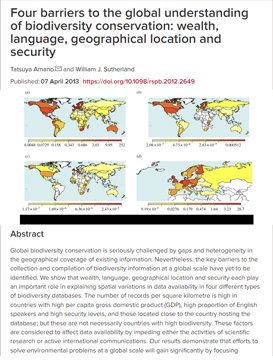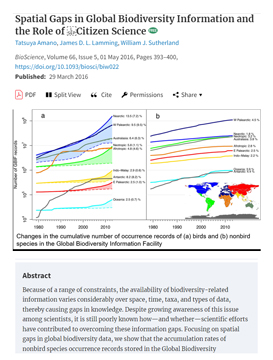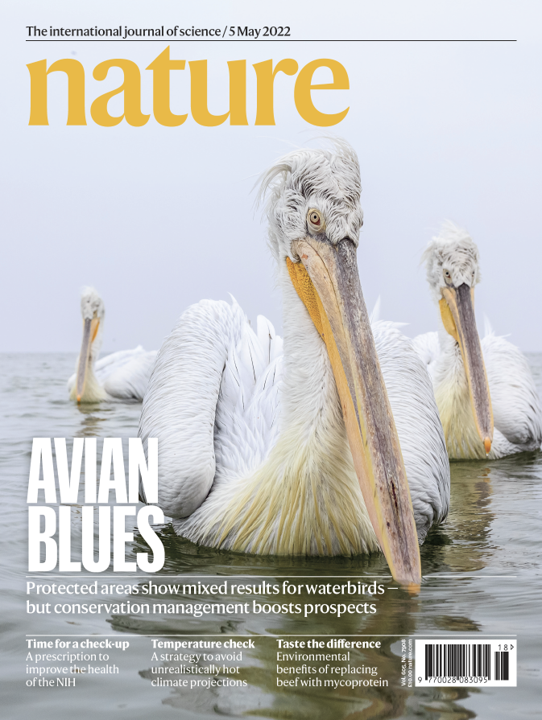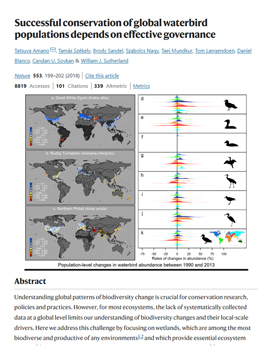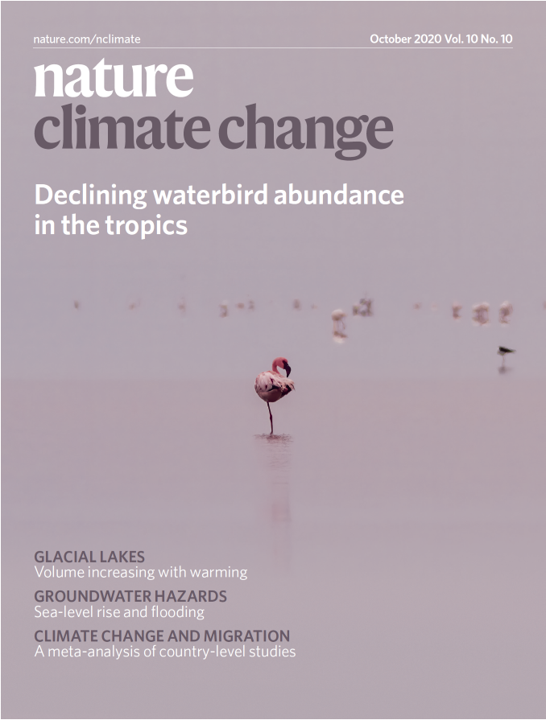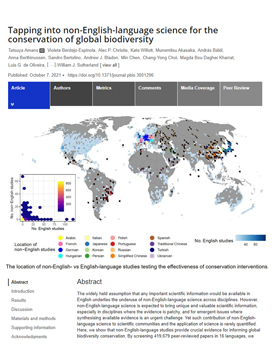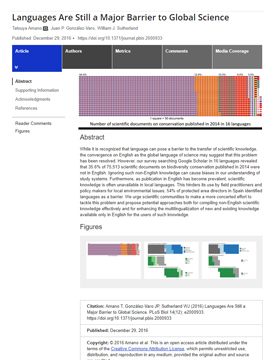
Research
We are committed to improving all aspects of biodiversity conservation, from science and practices to policies and public awareness and behaviour. Our research is thus target-oriented, adopting a wide range of approaches as needed. Our work to date can be grouped into three broad categories.
Science of efforts in conservation: identifying gaps
We have been working on how existing efforts in conservation science, practice and policies are distributed over space, time, and taxa, what causes the existing gaps, and what the consequences of those gaps in efforts are.
See for example:
Production of evidence needed for conservation: bridging gaps
We have been producing new scientific evidence to better inform conservation policies and practices. For this we have worked on a wide range of topics, from climate change impacts on plant phenology to the conservation of farmland biodiversity. The focus of our recent work, in particular, has been on assessing long-term changes in global waterbird diversity, threats facing waterbird diversity globally, and the effectiveness of conservation measures.
Transfer of evidence to its users in conservation
We are also committed to synthesising scientific evidence on conservation and providing the evidence to its users in an accessible way, with the aim of contributing to the implementation of evidence-based conservation. To date this has been achieved mainly through the translatE project, which aims to understand and overcome language barries to the global synthesis of evidence and to the local application of evidence.

